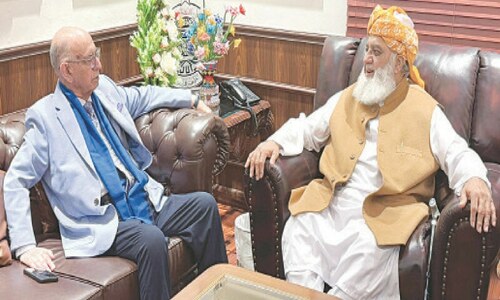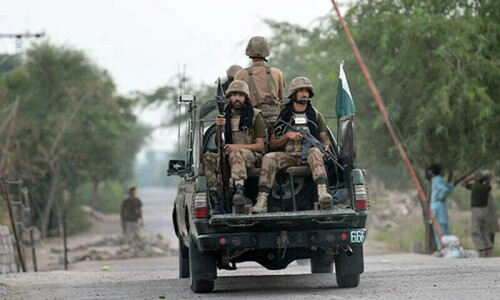Iranian women fans are free to enter a football stadium on Thursday for the first time in decades, after FIFA threatened to suspend the Islamic republic over its controversial male-only policy.
Iran has barred female spectators from football and other stadiums for around 40 years, with clerics arguing they must be shielded from the masculine atmosphere and sight of semi-clad men.
World football's governing body FIFA last month ordered Iran to allow women access to stadiums without restrictions and in numbers determined by demand for tickets.
The directive came after a fan dubbed "Blue Girl" died after setting herself on fire in fear of being jailed for dressing up as a boy in order to attend a match.
Women were quick to get their hands on tickets to attend Iran's 2022 World Cup qualifier against Cambodia at Tehran's Azadi Stadium on Thursday.
The first batch sold out in under an hour, and additional seats were also snapped up in short order, state media said.
A sports ministry official said the 100,000-capacity stadium — whose name means "Freedom" in Farsi — was ready to host even more women.
One of the 3,500 women to have secured a ticket was Raha Poorbakhsh, a football journalist.
"I still can't believe this is going to happen because after all these years of working in this field, watching everything on television, now I can experience everything in person," she told AFP.
'Blue girl'
But Poorbakhsh said she was aware of many other women without tickets and some were expected to travel from as far away as Ahvaz in southern Iran in the hope of still getting one.
Those lucky enough to attend will be segregated from men and watched over by 150 female police officers, according to Fars news agency.
People on the streets of Tehran said they supported the decision to allow women into stadiums.
"I would like there to be freedom for women, like men, to go freely and even sit side by side without any restrictions, like other countries," said a woman who only gave her name as Hasti.
Nader Fathi, who runs a clothing business, said the presence of women could improve the atmosphere in stadiums.
But he said "they will regret it" if they are exposed to "really bad swear words" and "bad behaviour".
The bumpy road Iranian women have travelled in order to gain free access to stadiums has not been without tragedy.
Sahar Khodayari died last month after setting herself ablaze outside a court in fear of being jailed for attending a match.
Dubbed "blue girl" because of the colours of the club she supported, Esteghlal FC, she had reportedly been detained last year when trying to enter a stadium dressed as a boy.
Her death sparked an outcry, with many calling on FIFA to ban Iran and for fans to boycott matches.
Judiciary spokesman Gholamhossein Esmaili at the time dismissed reports she had been told she would be jailed for six months as "fabricated rumours and hearsay".
And Khodayari's father told Mehr news agency that she did not "sacrifice" herself for any cause.
Shadow of FIFA
Ahead of Qatar 2022, Iran has come under pressure from FIFA to allow women to attend this round of World Cup qualifiers.
The ban on women in stadiums is not written into law or regulations, but it has been strictly enforced.
Since the 1979 Islamic revolution, women have only had rare access to stadiums in Iran.
About 20 Irish women attended a World Cup qualifier in 2001, and four years later a few dozen Iranian women were allowed to watch the national "Team Melli" take on Bahrain.
In October, as many as 100 Iranian "handpicked" women entered Azadi for a friendly against Bolivia.
But the day after, the prosecutor general warned there would be no repeat, saying it would "lead to sin".
The issue has been divisive in Iran.
The reformist camp has welcomed the decision to allow women into Thursday's match, while conservatives have argued that football is not a priority for women.
The Donya-e-Eqtesad financial newspaper called it "a step to weaken a taboo and also free Iran's football of the looming shadow of FIFA's punishment".
But the ultra-conservative Keyhan daily said women were more concerned about economic issues.
"There are many girls still single and at home, afraid of the cost of marriage. The government should be thinking of this, not sending them to stadiums," it quoted a mother as saying.













































